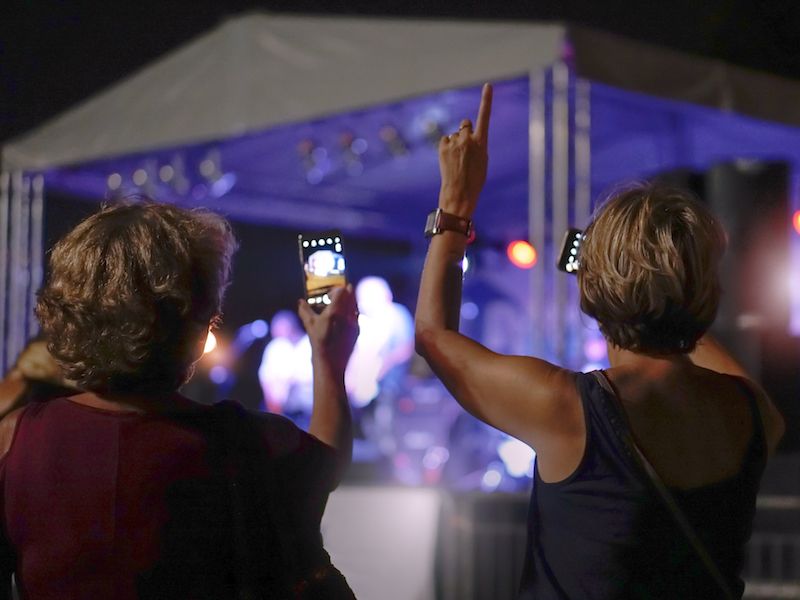
We’ve been getting excited about summer activities all year: swimming in the pool, going to the beach, and some activities that may injure your hearing. That’s correct, summer holds a lot of hidden risks to your ears, either from loud sounds or the external situations you could find yourself in. Any noises above 80 decibels could lead to harm to your ears, while permanent loss of hearing can take hold in pools or other bodies of water. To keep your ears safe this summer, you have to be aware of your surroundings and take precautions. Read on to identify the summer’s 6 hidden risks to your hearing.
When You go to Concerts, Use Ear Protection
Summer is concert time, but even if attend an outdoor venue, you still should take care of your hearing. 90 decibels is inside the danger zone for ear damage and concerts reach this volume even when you’re at outdoor venues. That’s the reason it’s always a good plan to use earplugs whether you’re seeing a show outdoors or indoors. Earplugs dampen the sound while still enabling you to hear and enjoy the music. If you’re taking young children to a concert, think about getting them a heavy duty pair of earmuffs because kids have more delicate hearing than adults.
Booming Fireworks Can Damage Your Ears
Honestly, there are a lot of reasons to avoid fireworks in the summer. We’re not talking about the skilled 4th of July fireworks show, we mean the backyard fireworks that lead to many of incidents throughout the summertime. As well as causing hand traumas, blindness, and house fires, backyard fireworks can also result in significant damage to your hearing since they are known to achieve decibel levels of 155. This 4th of July, leave the fireworks to the professionals and enjoy the display from a protected and sound distance.
Loss of Hearing Can be Caused by Lawnmowers
If you care about your yard, mower, edger, and trimer are your best friends. But that muffled feeling in your ears is an indication that your ears have taken damage. That’s because the lawn tools, which are constantly loud, impact your hearing over time. You’ve likely noticed landscapers using some kind of hearing protection, you should take a hint from them and wear earmuffs or earplugs next time you work on your lawn to ensure your hearing doesn’t get injured.
Hears How to Safeguard Your Ears When You Take a Swim
Millions of people suffer from swimmer’s ear each summer, which happens when bacteria-packed water becomes stuck in your ear canal. Swelling and painful earaches result when the ear gets infected by the bacteria. These bacteria are usually found in lakes and rivers but sometimes also be found in hot tubs and pools if the water is not thoroughly managed. No lasting injury should take place if you have your hearing checked out by a hearing expert. To be safe, when your swimming in your pool, wear special swimmers earplugs and keep the chemical balance precise to lessen the possibility of getting swimmers ear.
Boats and Other Water Sports
Summertime is a breath of freedom for those who enjoy being out on the water, smelling the fresh lake breeze or the salty air of the ocean. But, boat and jet ski engines can be loud,they can get up to over 100 decibels. Continual subjection to that kind of noise for a period of around 15 minutes can cause irreversible hearing impairment. Once again, it’s really in your best interests to wear a couple of throw away, foam earplugs while you’re out on the water to make sure you don’t accidentally damage your hearing.
Car Races Can Injure Your Hearing
It doesn’t make a difference what type of auto racing you like, midget, Formula 1, drag racing, motorcycle Formula 1. If you go to many auto-races this summer, they all pose a danger. It’s calculated that volume levels can exceed 120 decibels at some races, which is absolutely in the danger zone for hearing impairment. As pointed out earlier, your children should use muffs while you should use earplugs at least. Because you may not get to appreciate the sounds of any races in the future if you don’t.